You might have heard about the adorable Sheepadoodle that’s known for its beauty from both the inside and outside. If this adorable crossbreed Doodle has completely melted your heart, you might want to learn more about the Sheepadoodle temperament. After all, how can you adopt a pup if you’re not sure whether they’re the right match for you?
So, in this guide, we’ll discuss everything about the Sheepadoodle temperament, their pros and cons, and which families find the Sheepadoodle most suitable. Let’s get started!
What Is A Sheepadoodle?
The Sheepadoodle is a hybrid mix between the Old English Sheepdog and Poodle. Like many other Doodles, Sheepadoodles have endless varieties of cute names to choose from – Sheepadoodle, Sheepapoo, Sheepdoodle, Sheeppoo, or even Sheepdogpoo.
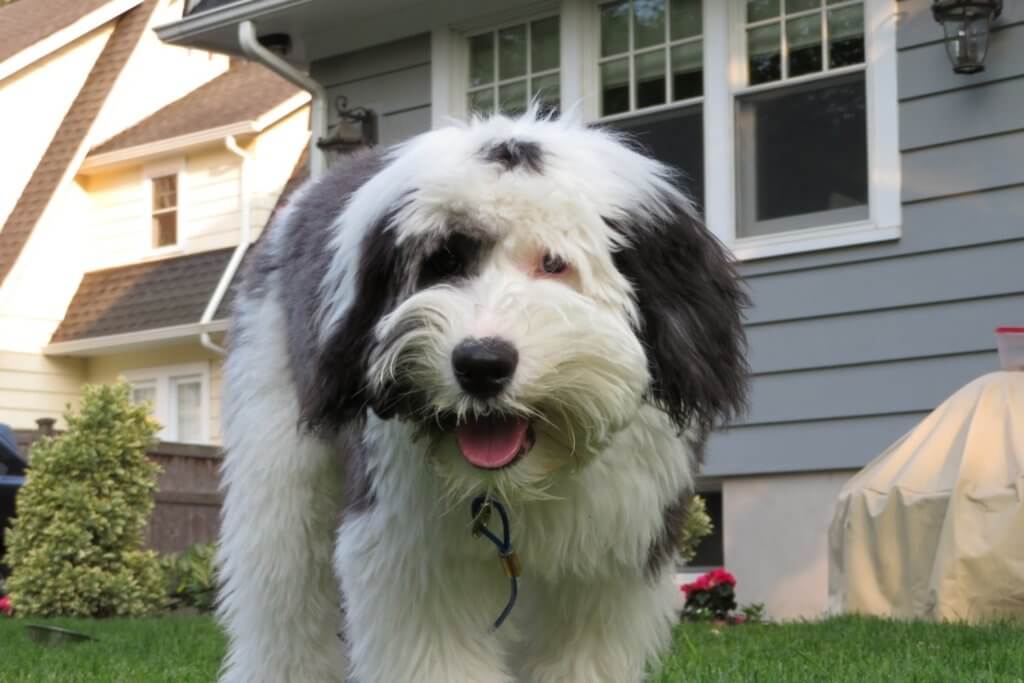
Sheepadoodles are well-known for their adorable teddy bear looks and an awesome personality. It’s thought that Sheepadoodles were first created somewhere between the 1960s and 1980s. But just like other Doodle breeds, they’re becoming more and more popular. That’s down to the fact that in the past many allergy sufferers couldn’t adopt dogs. But with Poodle genes used in the mix, the game has completely changed.
Sheepadoodles are large dogs with shaggy coats, which makes them look even bigger. From the Old English Sheepdog parent, they’ve inherited a large, athletic build. However, as this Doodle has become more popular in recent years, there are also smaller Mini and Toy Sheepadoodles emerging. Nonetheless, these pups are still much larger than most other Mini and Toy Doodles.
In terms of their temperament, there usually isn’t much of a difference between the Standard or Mini Sheepadoodle personality. All in all, your Sheepadoodle’s temperament is influenced by their genetics and what personality traits they inherit from each of the parent pups.
Most Common Sheepadoodle Temperament Traits
Sheepadoodles have a big build, but also a big heart. They’re playful, sometimes even goofy pups with the sweetest and most affectionate temperament. Sheepadoodles are very social creatures and they enjoy spending time with their humans. They even get along super well with children, making the Sheepadoodle the perfect family companion.
Sheepadoodles are also relatively active dogs, which means that training and exercise are key for this crossbreed. And although they can be very playful and energetic, they’re also calm and even-tempered. The perfect balance!
Another key Sheepadoodle temperament trait is that they’re very loyal and tend to bond with their families very easily. However, this also means that this Dood does not thrive on being left alone for too long.
Sheepadoodles also have the smarts, as both the Old English Sheepdog and Poodle are highly intelligent breeds. They’re easy to train and tend to pick up new manners, cues, and tricks fairly easily. On the other hand, some Sheepadoodles may inherit the independent streak from the Old English Sheepdog lineage. This might make training slightly trickier for first-time dog owners.
Sheepadoodle Temperament
Although the Sheepadoodle has many wonderful qualities, it doesn’t necessarily mean that this crossbreed is for everyone. Ultimately, when you’re considering adopting a dog, you want to make sure that their personality and temperament matches your lifestyle and family dynamics. So, considering the pros and cons of the Sheepadoodle temperament is crucial.
Sheepadoodle Temperament: Pros
Intelligent
As we mentioned earlier, Sheepadoodles have inherited their smarts from both Old English Sheepdog and Poodle parents. Their high intelligence levels means that training this crossbreed usually goes rather smoothly. They’re quick learners and from the Poodle’s side of the lineage they’ve inherited an extreme eagerness to please their owners.
But with such great power also comes great responsibility. Although one of the best Sheepadoodle temperament traits is their high intelligence, it also means that your pup requires continuous mental stimulation. Otherwise, your Sheepadoodle might just get bored, which can ultimately lead to bad and even destructive behaviors.
For this reason, any Sheepadoodle owner should make sure that their pup has plenty of opportunities to channel all that they’ve been blessed with. You should start training your puppy as soon as you bring them home. Also, make sure they get to socialize with people of all ages and other pets. Additionally, you should teach your pup manners, new tricks, and play interactive games with them.
High Energy
One of the best Sheepadoodle temperament traits is that they’re high in energy! If some larger Doods are known to be quite lazy and prefer to lay more on the couch, then that’s not the case with the Sheepadoodle.
Sheepadoodles love all things related to exercise. Think of running, playing fetch, swimming, and so much more. Thanks to their high energy levels, Sheepadoodles are amazing companions for people who lead an active lifestyle. For this breed, daily exercise is an absolute must, and they’ll gladly join you on your many adventures in nature.
It’s no surprise that Sheepadoodles have high energy levels and exercise needs. Their Poodle parents were first developed for hunting waterfowl and Old English Sheepdogs were created to drive cattle and sheep.
For this reason, Sheepadoodles need to express both their mental and physical energy, as it’s the best way to tire them out and curb any unwanted behaviors.
Affectionate, Attentive, & Protective
Another highly desirable Sheepadoodle temperament trait is that they’re extremely affectionate, loyal, and protective. They adore human company and they’re very loyal to their owners. They often become quite protective of their humans, especially the little ones.
Although large and high energy, these pups love nothing more than to cuddle up on the couch with you after a long day of walkies and playtime. In addition to that, the Sheepadoodle has become a popular choice as therapy and service dogs. That’s how well they bond with people!
What’s more, as Sheepadoodles have a protective nature, they tend to keep an eye out on any strange movements around the house. However, they usually don’t bark a lot, so you won’t have to deal with a yappy pup when your neighbor takes out the trash. Then again, this totally depends on your dog and their unique personality. Some are just more vocal than others!
Are They Good With Strangers?
Sheepadoodles are social dogs and they usually get along well with everyone. That being said, the key to friendliness towards strangers is early socialization. As we mentioned above, you should introduce your puppy to people of all ages and sizes from a young age. This helps your pup get used to all sorts of people and you’ll have a much easier time encountering strangers on your daily walkies once your pup is all grown up. If properly socialized, Sheepadoodles tend to love everyone they meet.
On the other hand, thanks to their protective nature, Sheepadoodles can sometimes be a bit wary of strangers. It might take a little bit of time for your pup to warm up to people they don’t know. Nevertheless, Sheepadoodles usually aren’t aggressive towards strangers and don’t make a fuss about meeting new people.
Sheepadoodle Temperament: Cons
Herding & Nipping
One of the Sheepadoodle traits that’s very much inherited from the Old English Sheepdog is the desire to herd people and other animals in near proximity, especially if they’re not ‘full-sized’ like human adults. Although it looks cute and funny at first, it can become an issue if not handled appropriately.
Nipping is one of the ‘techniques’ that Sheepdogs use to herd sheep. So, if your pup has inherited this trait, they might be inclined to herd and nip at small children and other animals in your household.
Like with other undesired behaviors, you can combat the herding and nipping with proper training and early socialization. And, of course, if your pup does have a problem with it, you should never leave them alone with small children and other pets in the household, just in case!
Separation Anxiety
As we mentioned earlier, the Sheepadoodle is a social and outgoing breed that tends to get attached to its family very easily. As a result, these pups can often suffer from separation anxiety. Even though their affectionate and sweet nature makes them so precious, separation anxiety will still cause excessive stress on your pup.
Dogs who experience separation anxiety might start crying as soon as you’re about to leave the house. Some lose their appetite or become destructive, while others start leaving accidents around the house.
Of course, separation anxiety can be managed to some extent. However, as Sheepadoodles are prone to developing this problem, they are not ideal for people who have to leave them alone for long periods of time.
Preferably, someone in your household would have to stay home during the day when the other has to go to the office. Or, another option would be to hire a dog walker or a pet sitter for the day.
If you’d like to learn more about this topic, make sure you check out our full in-depth guide on How To Help A Dog With Separation Anxiety.
Destructive Chewing
Another common issue with Sheepadoodle temperament is that they’re known to chew on anything they come across. As with any behavioral issue, you should start training your pup good manners from a young age.
On the other hand, it’s not unlikely for a Sheepadoodle to learn this bad habit again during their adolescence period. During those teenage months, dogs tend to ‘unlearn’ all the good manners and behaviors you’ve taught them. But as long as you stay consistent and firm, this problem should pass soon enough.
At the end of the day, all of those behavioral issues can be fixed with proper training techniques. So, if you’re struggling with a mouthy Sheepadoodle, we recommend you reach out to a professional dog trainer or try the Online Puppy School by Baxter & Bella.
Energy Levels
Even though we listed the Sheepadoodle’s high energy levels as a pro, it can also be deemed as a con for many dog owners. Mainly because Sheepadoodles need to exercise regularly, and it doesn’t include just your once-a-day walk around the block.
For this reason, the Sheepadoodle might not be the best choice for people who are looking for a super laid-back and chilled dog who doesn’t require much exercise. In fact, if your Sheepapoo doesn’t get to exercise as much as they need, it can lead to destructive behaviors and even separation anxiety.
And as we mentioned earlier, mental stimulation is just as important as physical stimulation. A Sheepadoodle needs both to thrive and live the most fulfilled life they possibly can.
Not Ideal For Apartments
It’s difficult to find a dog as perfect as the Sheepadoodle. They’re so fluffy and cute and overall just the most amazing companions anyone could ever wish for. However, thanks to their big size and high energy levels, Sheepadoodles are not ideal companions for people who live in apartments.
Above all, you’ll want to make sure that your pet has a comfortable life in your house and can thrive in the setting they’re in. And although many smaller Doods can live comfortably in an apartment, Sheepadoodles will thrive best in a more spacious home. Preferably with a fenced backyard, where they have plenty of room to run, play, and roam around.
On the other hand, as the Sheepadoodle is such an affectionate crossbreed, we would definitely advise against having your pup live outside at all times. Rather, your dog should live inside the house with you while having the opportunity to spend time in a safe, fenced backyard as well.
Are Sheepadoodles Suitable For You?
So, now that we’ve considered all the pros and cons of the Sheepadoodle temperament, it’s time to understand whether or not this hybrid breed is suitable for you.
The Sheepadoodle is a suitable dog for you if you:
- Are active and enjoy going on hikes and adventures
- Have a spacious home with a large, fenced backyard
- Are looking for an affectionate and very social dog
A Sheepadoodle might not be the best choice for you if you:
- Live in an apartment
- Have to leave your pup home alone for the majority of the day
- If don’t have as much time to exercise and train your pup or aren’t as active yourself
- Have young kids in the house
Sheepadoodle Temperament: Frequently Asked Questions
Do Sheepadoodles Bark A Lot?
Although Sheepadoodles have a protective nature, they don’t tend to bark much at all. They’re rather calm and even-tempered dogs and aren’t known to be very vocal. However, excessive barking can also be an issue of improper training or socialization. It can also indicate that your pup doesn’t get enough mental or physical stimulation throughout the day or that they’re experiencing separation anxiety.
If you’re struggling with a Sheepadoodle that barks at anyone or anything, you might want to reach out to a professional trainer in your area or try the Online Puppy School by Baxter & Bella.
Do Sheepadoodles Shed?
Like other Doodles, the Old English Sheepdog was initially mixed with the Poodle to achieve a low-shedding pup that has the same qualities as the Sheepdog, minus the insanely shedding coat.
Old English Sheepdogs are known to be very heavy shedders, which means that they’re not suitable for people who suffer from dog dander allergy. Or, if you’re just not keen on constantly cleaning your house and furniture of loose, dead hair.
Thanks to the Poodle’s low-shedding genes, Sheepadoodles often also inherit a low-shedding coat. The Sheepadoodle has many of the same amazing personality traits as the Old English Sheepdog, but they don’t shed nearly as much as the Sheepdog parent.
Sheepadoodles can inherit either a more Poodle-like curly coat, a straight Sheepdog double coat, or a wavy combination coat. As a general rule of thumb, curly coat Sheepadoodles shed the least, wavy coat Sheepadoodles may shed some hair, whereas straight coat Sheepadoodles shed the most out of all the three coat types. Even so, thanks to the Poodle genes in their genetic makeup, straight coat Sheepadoodles also shed considerably less than the Old English Sheepdog.
Are Sheepadoodles Good Pets?
Sheepadoodles are amazing pets for almost anyone! Sheepadoodles are best described as playful, loving, affectionate, and energetic pups. They thrive on human interaction and they even get along super well with children. And thanks to their high intelligence levels, you should have no problems training this adorable Dood.
On the other hand, as Sheepadoodles are rather high energy, they aren’t the best choice for people who don’t have the time or energy to spend a lot of time playing and exercising with the pup.
Sheepadoodle Temperament: Final Thoughts
We can certainly understand why anyone would want to adopt a Sheepadoodle. The Sheepadoodle temperament is just so precious and they even look like huge, cuddly teddy bears.
But before you commit to raising this gentle giant, it’s crucial you weigh all the pros and cons that come with this Dood. We hope this guide has managed to answer all of your questions about the Sheepadoodle temperament so you can make an educated decision before committing to your four-legged family member for many years to come.
Parents of Sheepadoodles: What is your Sheepadoodle’s temperament like? Let us know in the comments below!

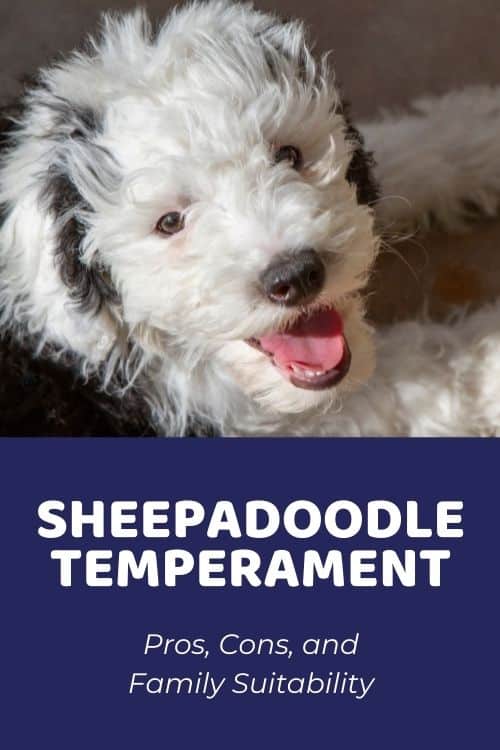



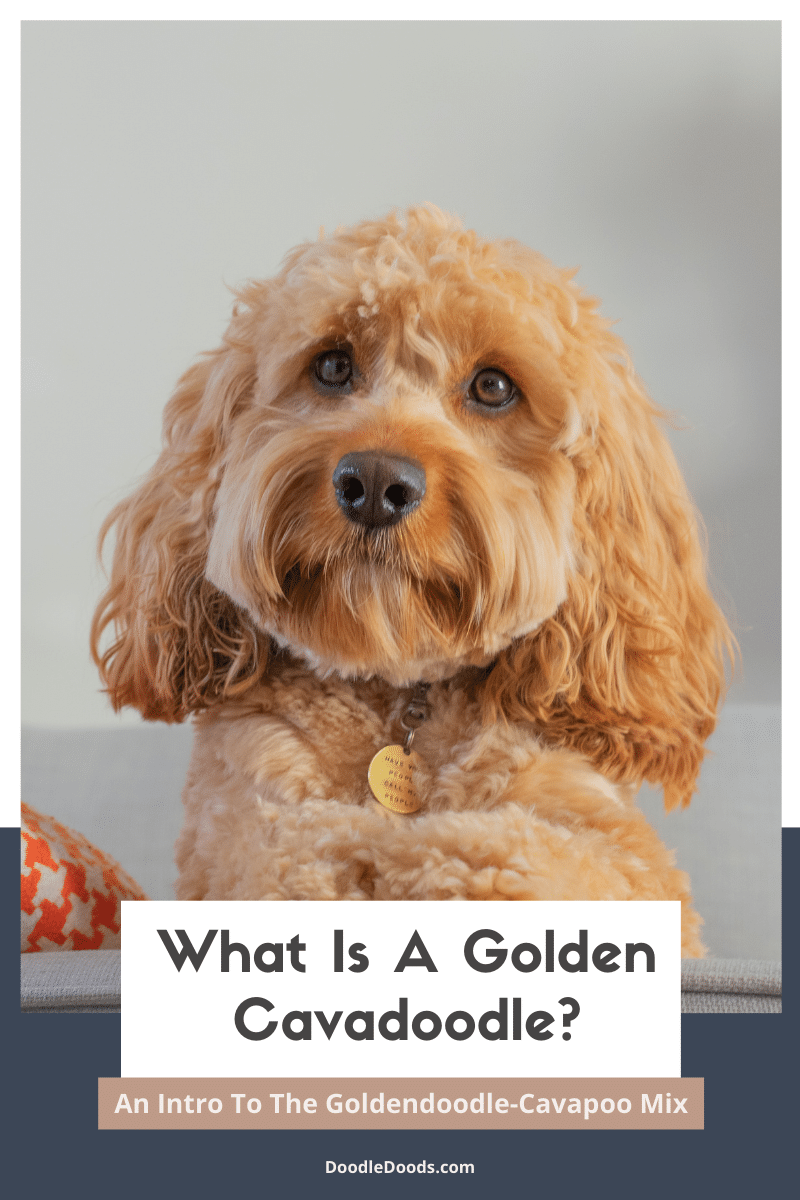
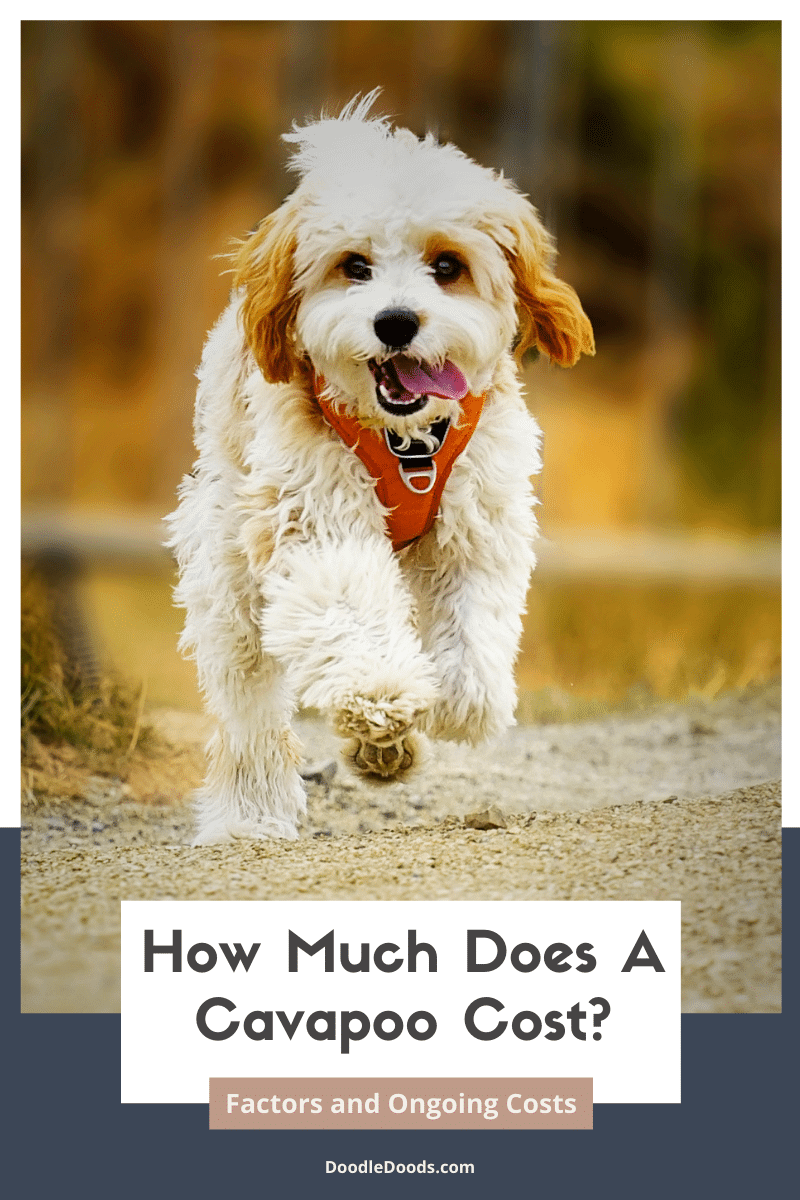

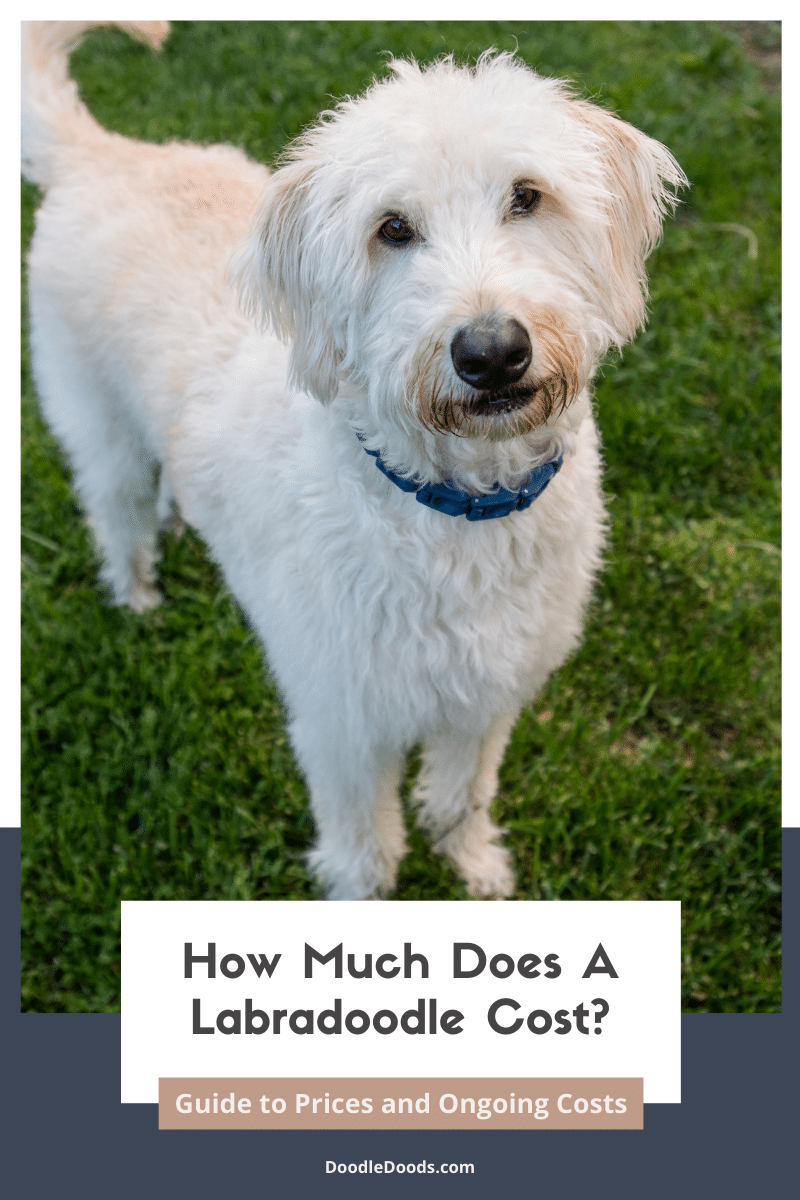
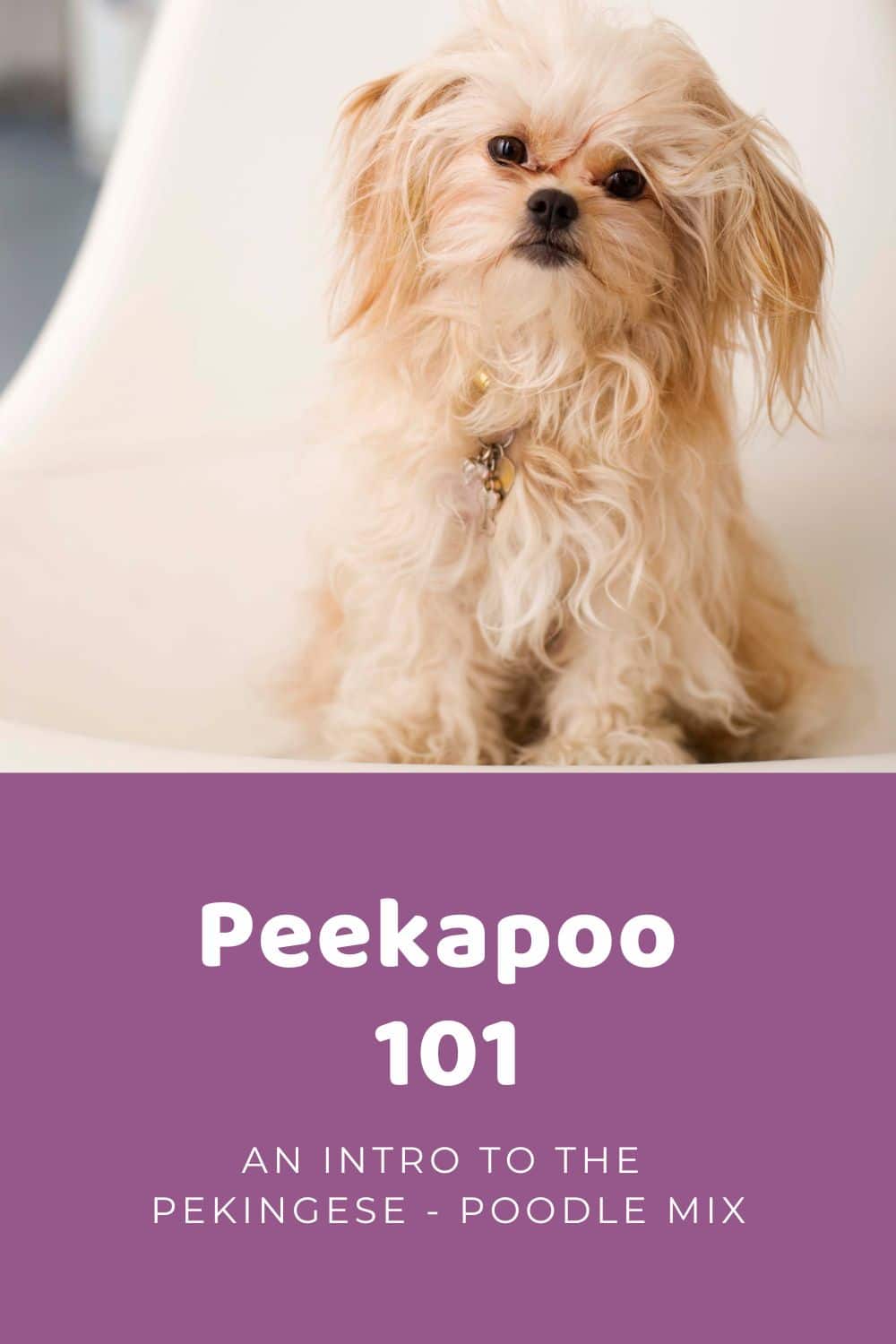
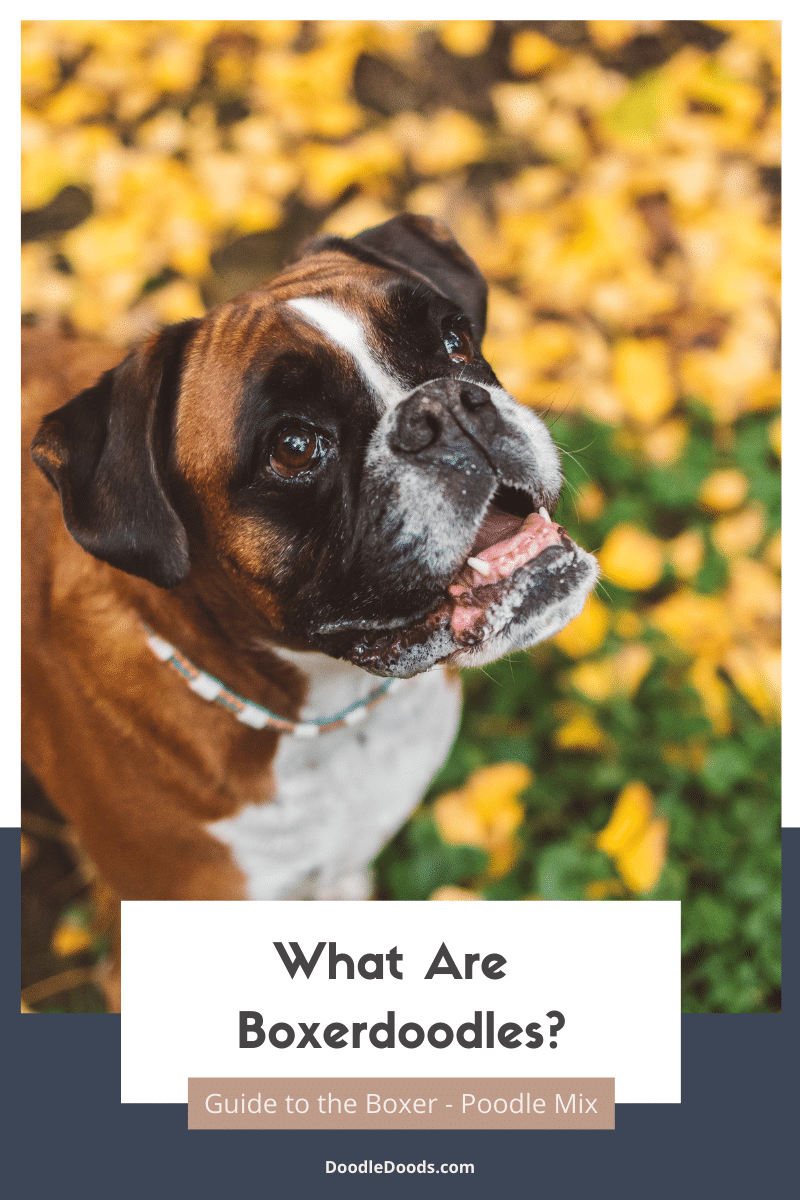
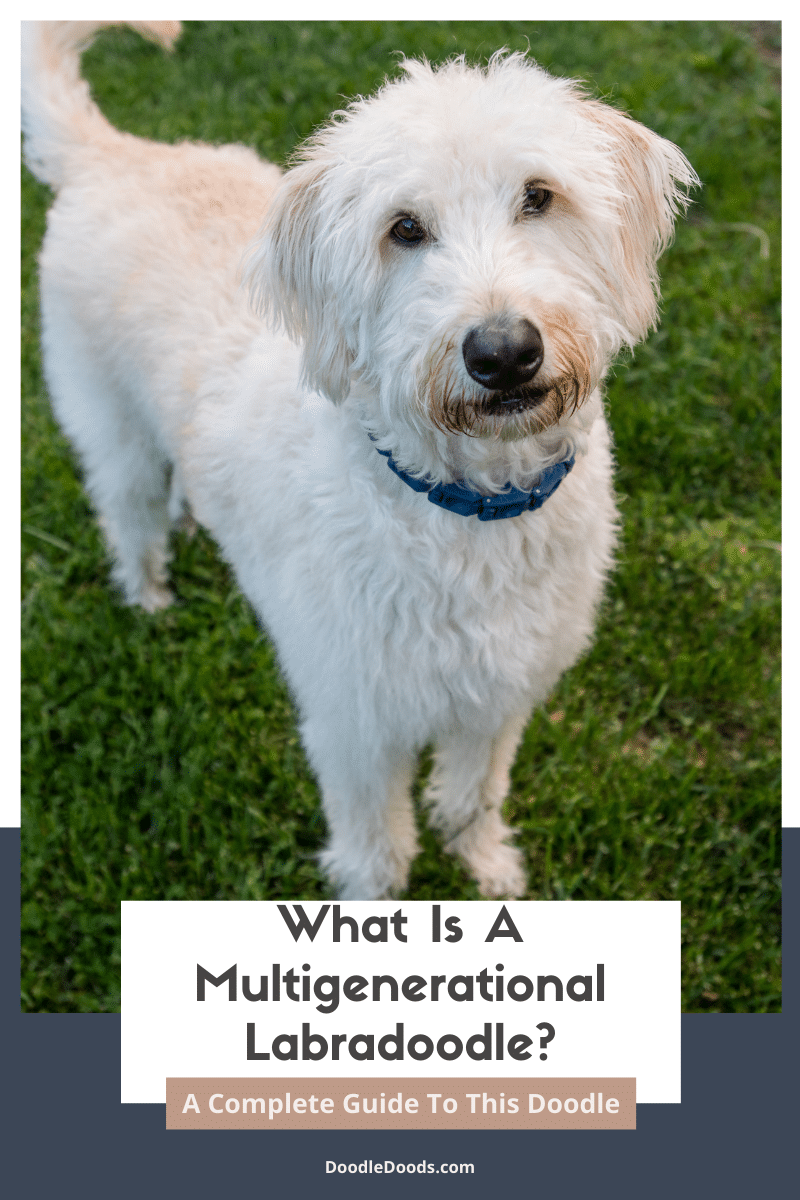

My Sheepadoodle the opposite he’s forever barking bullying my other Sheepadoodle and older dog. I love him but bc of him there is a lot of stress in house
December 25, 2022 at 1:34 pm